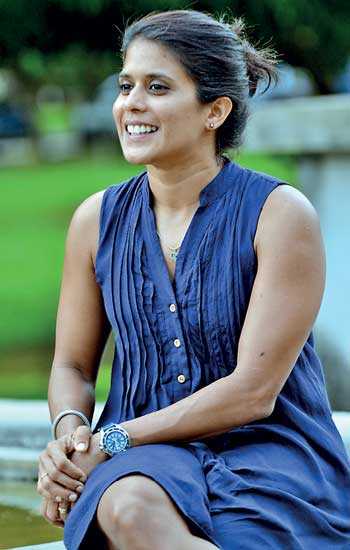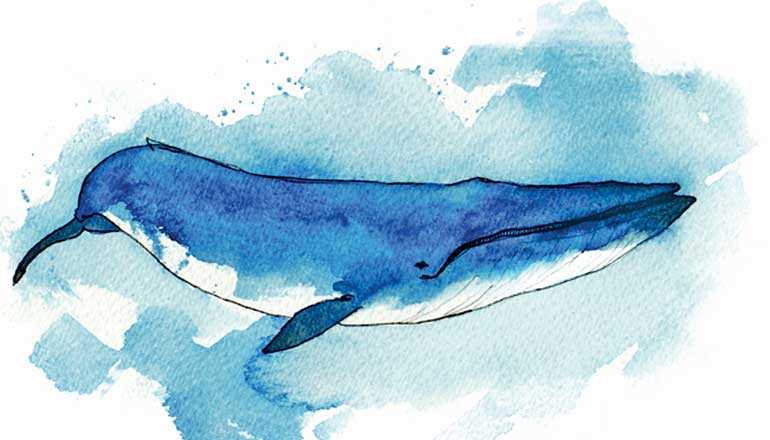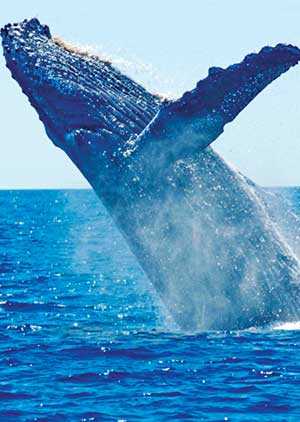Tuesday Feb 17, 2026
Tuesday Feb 17, 2026
Saturday, 19 October 2019 00:10 - - {{hitsCtrl.values.hits}}
Dr. Asha De Vos opens up on change, celebrity, and never giving up hope

By Madushka Balasuriya
There is an old philosophical quandary which goes, ‘if a tree falls in the woods, and no one is around to hear it, does it even make a sound?’
While the question has several answers, the most intriguing one is a simple ‘no,’ one which makes the case that sound does not exist without our hearing of it. However, the alternate take on this is that the tree will in fact make a sound, even if nobody heard it, because it quite simply could have been heard.
The thought experiment is said to be a commentary on human beings and how we perceive the world, but it can also be utilised as a metaphor for the constant human struggle for recognition.
All this is of course just a longwinded way to introduce the subject of this article, Sri Lanka’s very own Dr. Asha De Vos. For Asha, and many scientists like her, much of their work can easily be condensed into the aforementioned metaphor, where the work is in the unenviable position of the falling tree and the sound, or lack thereof, of it falling, is in reference to the wider public engagement with their work.
The crux of scientific pursuit, after all, is that it is ultimately a labour of love – something that rarely gains recognition until such a point that it does. But for Asha, who last year had a stratospheric rise in terms of public and critical acclaim for her work, her journey is one that embodies the ideals of persistence and longevity.
“The way I tell my stories, I want people to know the reality – that I slogged for 30-plus years to get the recognition I have received in the past year. It took 12 years before a Government official picked up the phone and asked for my help,” she says, in an exclusive interview with Daily FT.
Indeed, while Asha initially broke through into the public conscious in 2011, when a Channel 7 documentary of her in Australia went viral gathering millions of views, it wasn’t really until 2018 that her star really took off back home in Sri Lanka.
As such, among the plethora of awards and felicitations she has received over the last year-and-a-half, some of the most notable ones include being named in the BBC 100 Women list of the most inspiring and influential women from around the world, becoming the first Sri Lankan woman to have her portrait hung at Oxford’s Lincoln College 15th Century Hall, and being named one of 12 Women Changemakers by the Sri Lankan Parliament.
But, as Asha points out, her trajectory in terms of her growing celebrity has been a rather unorthodox one, because in the years prior to her being recognised in Sri Lanka her work had already been featured on numerous international publications such as the previously noted Channel 7 Australia documentary, the BBC, the New York Times, CNN, TED, and National Geographic, to name but a few.
 “My recognition internationally had been pretty big before people in Sri Lanka started to recognise me, which is also quite interesting,” she notes.
“My recognition internationally had been pretty big before people in Sri Lanka started to recognise me, which is also quite interesting,” she notes.
“Sri Lanka started becoming this place for blue whales because of people watching these documentaries that I had been a part of, and so there was that recognition that came – but just not in Sri Lanka. But because I wasn’t working for that recognition I didn’t really care. I was like I’m here to serve, this is my goal, and my dream in life has been to give back to my country, I’m gonna keep going. If they never mention my name it wouldn’t matter because I feel like I’m doing what I was born to do.”
“I started to realise that in countries like ours our dependence on the ocean is extractive, fisherman go to fish. A lot of fisherman can’t swim, so there’s a fear around this space that serves a particular purpose. And then as a result that trickles in to the villages and stuff, and life ends on the shoreline.”
For this interview we meet at Independence Square. The setting is pretty consistent with how Asha would love to see the world – full of greenery, and people constantly looking to better themselves.
Unlike most interviews I conduct, finding information on Asha and her history is refreshingly easy, and that’s down to her love of storytelling. Ever the open book, during our conversation too she speaks candidly about the start of her career, and the negativity that surrounded her choice of profession.
While her parents offered her unconditional support, she says other people in her life were more sceptical of her career choice, which even then struck her as odd considering that Sri Lanka was an island nation.
“When I was 18 and I told people I wanted to be a marine biologist everyone was like, ‘putha what will you do with that degree?’ And I’m like it’s an island, so in my mind I was like ‘I don’t understand what you’re asking’. I have a long-term job here, you don’t. Over the years I’ve really mulled on what drives that.”
In the end she believes she’s come to understand this paradox a little better, which she also believes explains why it took so much longer for her to gain recognition in Sri Lanka as opposed to abroad. To put it simply, Sri Lanka has a frayed relationship with the ocean.
“I started to realise that in countries like ours our dependence on the ocean is extractive, fisherman go to fish. A lot of fisherman can’t swim, so there’s a fear around this space that serves a particular purpose. And then as a result that trickles in to the villages and stuff, and life ends on the shoreline.
“It is a common problem in a lot of developing countries, poorer countries, because it’s a survival thing; the ocean is a space of survival, extraction, it’s not a place of protection or recreation.
“When I started, most people didn’t know there were whales around Sri Lanka. Then that documentary went viral and more people learned that there were whales, and it became really exciting. The following year I realised there was a problem where the whales were getting hit by ships and getting killed. And then I made a big statement of that. The Government was cagey, and in the news one of the ministers had been like ‘we don’t care if they’re getting hit by ships, we’re not going to destroy the economy of the country’.
“I kind of understood that response though, because it was kind of like a gut punch for them – they learn there are whales and that they’re dying, that’s a lot of information at once!”
But she says over the years she’s seen the needle shift little by little, and for her any victory is one that she will readily celebrate.
“After a few years, once we started talking about it more, and the research we were doing got more widely recognised, then it [Government sentiment] started to shift. I saw a shift around what we can do. I think being in the inside I can see these tiny baby steps that have happened, but I think from the outside sometimes it’s harder to see the shifts. I have learned to celebrate the small victories.”
“I’ve been very conscious about it from the very beginning, because I was afraid that I would lose myself in this, because it apparently happens to people. I went through this whole, very conscious, sort of regrouping of myself and reminding myself that it wasn’t that accolade, or it wasn’t that interview, or it wasn’t that TV shoot that was going to create who I was – it’s really that ultimate mission that counts.”
It’s this build-up of small wins that has now snowballed into the environmental juggernaut that is the brand Asha De Vos. While she would cringe at such a description, there aren’t too many clearer ways to describe how much her popularity has risen in the last few years, especially in Sri Lanka.
Now, she says, she’s frequently recognised and stopped on the street – though she says, this is a welcome change, as it’s mostly by kids who aspire to be like her. At one point in our conversation she relates an anecdote of a parent who wrote to her, sharing a story about how her six-year-old daughter was obsessed with Asha, and had been reprimanding her parents for not recycling effectively.

This, says Asha, is one of things which makes all the trouble worth it.
“When people use the word celebrity, it makes me a little uncomfortable. I feel increasingly responsible in my everyday actions, in what I do and the way I live. Because I feel that there are more and more eyes on me. And I’m not saying that in a conscious sort of way where I’m trying to be someone else – I’m very much myself – but I do realise that there’s a whole younger generation that looks up to me now, and I want make sure that I am passing on the right messages, that these kids can start to believe in themselves just by following my story. And that they sort of see me for truly who I am.
“It’s really flattering when someone walks up to you on the street. I love it because there are a lot of young kids particularly who are super excited, and that for me is so exciting because I’m a scientist – I’m such a well-known nerd, and the fact that there’s somehow this celebration around a profession that’s not just cricket or acting or music, which has been the case traditionally, to me feels really special.”
With nearly 12,000 followers on Instagram, Asha is thrilled at the growing reach and platform she has to share her message. Going through her profile, you’re bombarded with uplifting posts around awareness, and more pertinently, her gratitude at being able to do what she loves. That said, she says that what keeps her this grounded is her inherent introspective nature.
“[When that documentary in 2015 went viral] I remember consciously thinking that that was kind of a big deal, that within a year about five million people had watched this video. I was just a PHD student at that point, and I had my own selfish dream of becoming a marine biologist and sort of really establishing the blue whale research and it kind of took off in a direction that I didn’t see coming.
“As that happened it kind of snowballed and I realised I was becoming a kind of role model for people, so I guess I’ve been slowly inching into this position in some ways. But I’ve been very conscious about it from the very beginning, because I was afraid that I would lose myself in this, because it apparently happens to people. I went through this whole, very conscious, sort of regrouping of myself and reminding myself that it wasn’t that accolade, or it wasn’t that interview, or it wasn’t that TV shoot that wasn’t going to create who I was, it’s really that ultimate mission.
“So when last year came around, mentally I had gone through all of this – I’m a very introspective person, so I spend a lot of time kind of assessing and overanalysing myself – I was very conscious that it was multiple decades of hard work, and suddenly there was a tipping point that I had got to.”
“I personally want everyone to be a marine biologist, but at the end of the day if they’re just living their best life, that’s what matters. But being ocean-conscious citizens, so there’s always that caveat. I think people forget that in life we acquire transferable skills.”
In mid-2018, hot on the trail of her newfound celebrity, Asha established Oceanswell, Sri Lanka’s first marine conservation research and education organisation, which is also home to the ‘Sri Lankan Blue Whale Project’ – the first long-term study on blue whales in the region.
The organisation is also very keen on enlisting students and volunteers for help, but for Asha this is not limited to individuals with a background in science. The ocean, she believes, should be everybody’s concern, and as such her organisation is far from a closed shop.
“I personally want everyone to be a marine biologist, but at the end of the day if they’re just living their best life, that’s what matters. But being ocean-conscious citizens, so there’s always that caveat. I think people forget that in life we acquire transferable skills.
“Say you went into law and you really want to be a marine biologist. You don’t have to be a marine biologist, you can be an environmental lawyer who actually fights for the oceans. Say you studied art, you’re an artist, there are so many ways to apply art for communication purposes, so many ways to engage people to take care of the ocean using art.”
This ethos is highlighted in Oceanswell’s monthly discussion group ‘Marine Conservation Conversations,’ where individuals from all walks of life are encouraged to come together to create meaningful change.
“It’s open to the public, and what happens with that is when I give the data out, people register and we send a scientific paper to them to read, and then we come together to break it down. And one of my ground rules is that I don’t want to know about your background. Because people become too apologetic that they’re in this room, that they’re talking about marine conservation, but they don’t have a marine conservation background.
“I don’t care. You can be a business person, but you have role to play in making a difference for the ocean and so I want you in this room. I’m not going to exclude you just because you don’t come with a science degree. For me it’s about breaking those barriers and for people to realise that they can all be scientists in their own way, and whatever they do in their everyday lives can contribute to creating that change.”

“The idea of conservation shouldn’t be something you learn when you’re 18, 19 at university. The idea of conservation should be a word that you use every day from the time you start school.”
As we wind down our conversation, there’s one question that’s always been at the periphery of our conversation but never explicitly asked. With the likes of Greta Thunberg and the Extinction Rebellion protests in the news, talk of a climate change tipping point has never been as much of a talking point as it currently is.
Speaking to Asha, you can’t but helped by invigorated by her optimism and her single-minded march towards leaving the world a better place than when she found it. So I ask her, does she think we’ve passed the point of no return?
“Asha, my name, means hope in Hindi. So I am like a born optimist, a foolish optimist. I believe in the goodness of humanity and I believe that we can drive change. Our kings prioritised our environment, we come from such a strong rich culture of actually integrating our environment with our lives, and considering it an important component of people’s livelihood and lives. And somehow we decided that was not important, we lost that, and we now have a totally different agenda on our minds and the way we think has shifted.”
So how do we change that?
“We can change that if we get into schools and change curricular. I always tell kids ‘you’re the most important person in the room’. The previous generation has screwed up, and we’re here in the middle trying to cobble things together, but we’re still passing on a damaged planet to these kids.
“I think the idea of conservation shouldn’t be something you learn when you’re 18, 19 at university. The idea of conservation should be a word that you use every day from the time you start school. We should be teaching things like ethics and morals and values, because that’s what’s going to allow them to care for what’s around them or the person that’s walking on the street next to them.
“But I tend to hopeful because I know what I can do. I have seen the change I’ve had on the few people around me, who have started to believe that the ocean is important. So I like to think that once that army is grown and built, and it is growing, that collectively we can have this bottom up push and drive that change. It’s happening slowly and there’s nothing I can do to speed it up, but I believe that we can still be hopeful. But it needs all of us.”
Pix by
Shehan Gunasekara